Hollywood & Spine Archive: Mortal Monday
An overview of two MORTAL KOMBAT novelizations - one based on the game, one on the film - originally published in April 2021.
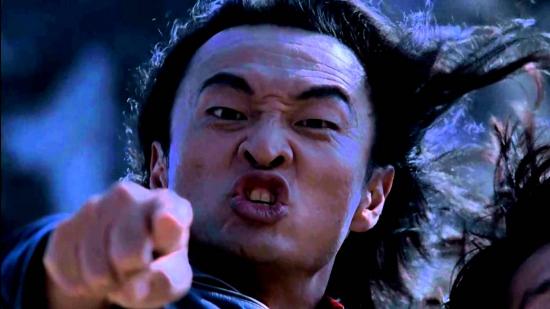
Prepare yourself! This was an enhanced, expanded discussion of the novelization to the original Mortal Kombat video game I wrote in 2019, which added coverage of the novelization to the movie (printed only months apart) and some brief interviews with the author of the game novel (who might be insane). This was something I had tried to pitch to some larger outlets, which is why it reads differently than most of my usual Hollywood & Spine installments. It didn't pan out, but I'm still proud of it! (originally published 4/26/2021)
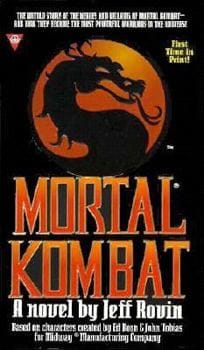
Mortal Kombat: A Novel by Jeff Rovin (based on characters created by Ed Boon and John Tobias for Midway Manufacturing Company) (Berkley Boulevard, 1995) and Mortal Kombat: A Novel by Martin Delrio (based on the motion picture written by Kevin Droney) (Tor, 1995)
For over a quarter century, Hollywood's quest to adapt video games into movies has been a fascinating, quixotic one. From the start, it was clear that turning something you play into something you watch required more than a cheat code to conquer. Rain Man screenwriter Barry Morrow put it plainly to Variety in 1992, discussing his ultimately-unused script for Super Mario Bros.: "Most Super Mario journeys end in failure."
But like so many quarters into an arcade cabinet, studios don't stop trying. The latest attempt: a new take on Mortal Kombat, now streaming on HBO Max. It's the third time a big screen version of the series has been attempted, after the blockbuster 1995 film and its so-bad-it's-good sequel. Yet turning Kombat into a movie is only the Prince Goro of fighting game adaptations - the true final boss might be turning the gore-filled stories into books. Consider not one, but two Mortal Kombat novelizations published in 1995 - one based on the game series itself, and one based on the movie.
Ah, the novelization. Adapting a movie into a book instead of the other way around is almost as old as the medium itself - a prose version of King Kong was an early bestseller - and at a time when rewatching a film on video or television could take at least a year from its original release, novelizations provided a worthy memento for movie buffs to preserve the stories. But it's an inexact science: most novelists were often handed a screenplay and maybe a few publicity stills to turn a primarily visual medium into hundreds of pages of prose. Alan Dean Foster, who adapted Star Wars and Alien into book form - and recently made headlines for royalties The Walt Disney Company owes him for both novels - wasn't shown Alien's titular star beast, and was given a script packed with scenes that wouldn't be seen by the public for decades.
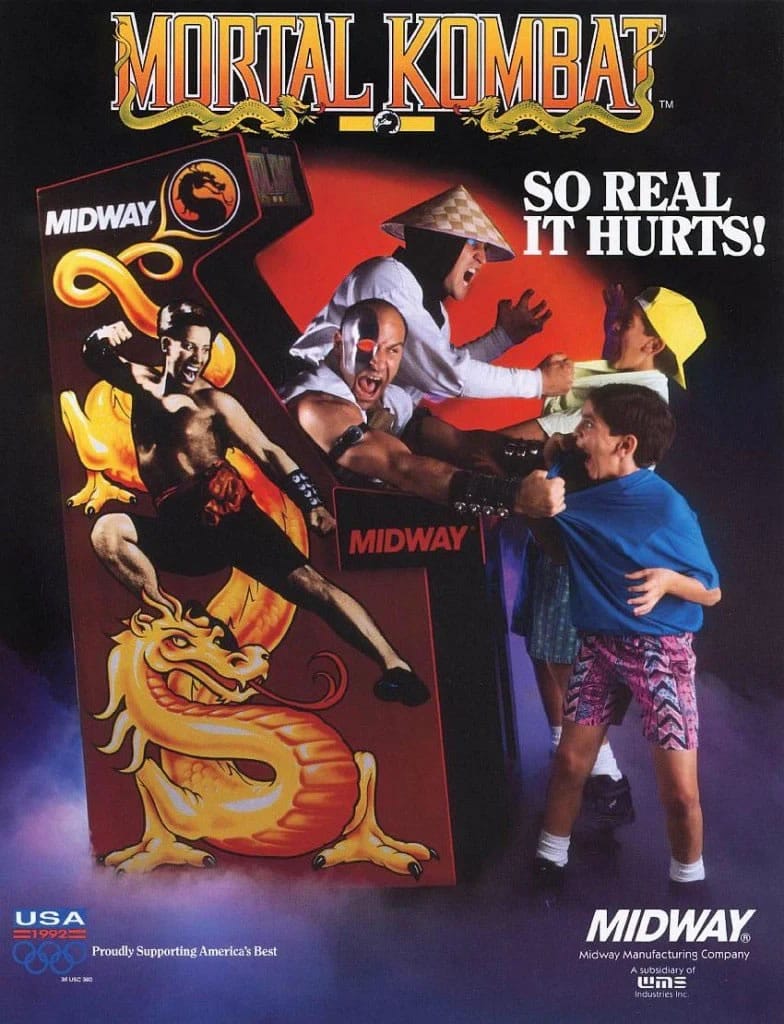
Despite that cognitive dissonance, Mortal Kombat, in its heyday, was a hot enough property for two novels to hit stores in rapid succession. The one based on the game was penned by Jeff Rovin, an editor at the Weekly World News who made headlines in 2016 for saying some truly bizarre things about the Clintons on Sean Hannity's smooth-brained Fox News show. In an e-mail interview, Rovin said he got the gig off the strength of three details: his history of writing novelizations to films like Re-Animator and Cliffhanger, a string of video game hint books, and being "a lifelong martial artist."
His Kombat novel is almost as unusual as his backstory: it's a loose adaptation of the first two games, with a third of the book devoted to the ancient warrior Kung Lao's defeat in Kombat by the four-armed human/dragon hybrid Goro, an occurrence alluded to in Mortal Kombat's attract screen.
Mortal Kombat's mythology is sprawling and silly; consult Ben Mekler's wild Mortal Podkast for a hilarious, character-focused deep dive into the series (plus my favorite detail: the explanation of what a "soulnado" is). With the series' backstory only loosely defined at the time of publication, Rovin was free to mix it up, having the game's core heroes (save Johnny Cage, also omitted in the new film) pursue a mystical amulet left behind by the elder Lao. Of course, the sorcerer Shang Tsung is also trying to get the amulet, to open a portal from the "Mother Realm" to the Outworld at the behest of its emperor, Shao Khan.
Asked about the use of an amulet as a plot device, Rovin said, "I don't remember specifically, but the concept has been knocking around for millennia." (Whether this amulet inspired later in-canon amulet quests remains to be seen.) He also couldn't remember if Kombat kreators Ed Boon and John Tobias gave him any ground rules about the mythology of the MK universe beyond "expand[ing] the universe without using major new concepts"; he copped to an approval process from the licensors, "but I don't recall it being as onerous as on others."
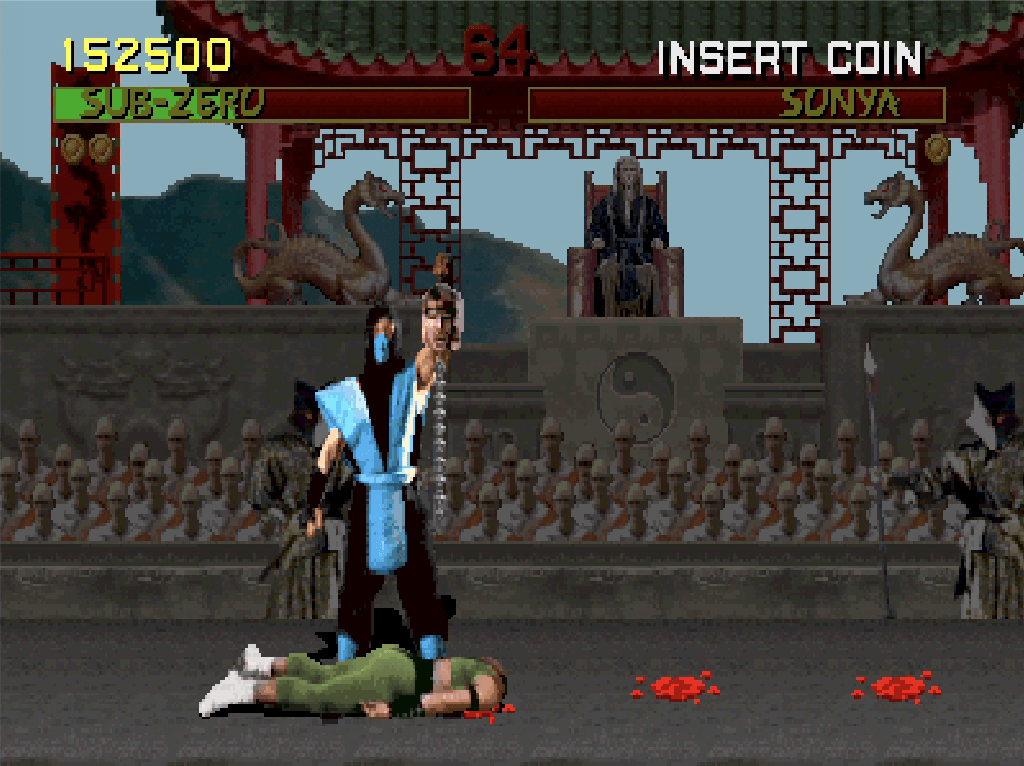
For a series noted for its extreme violence, the book's action is shockingly tame. Sure, Liu Kang shoots flames from his hands at one point, and Scorpion (here a young ninja possessed by the soul of his father, who was murdered by Sub-Zero) has his spear. But there's no dismemberment, no heads flying off bodies - the very things that made the games so popular and controversial. "In terms of action violence," Rovin said, "there did not seem to be interest in blow-by-blow, but rather plot." (Hardcore fans of the series may feel differently: that there is room in their hearts for both.)
What Rovin gives us instead are two exclusive characters: a bumbling demon named Ruthay, tasked by Shao Khan to assist Shang Tsung; and the younger Kung Lao's own charge, a village shepherd named Chin Chin. The latter character exists mostly for exposition, while Ruthay is a misguided stab at comic relief. Can you imagine if Darth Vader had a dopey sidekick?
Despite the liberties taken with the story and the stunning lack of decapitations, Rovin says he enjoyed writing novelizations in his time. "They are fun as long as the studios don't sit on you to stick to the script," he said. "These often lack the connective tissue a novel requires." (He cited an excised prologue in his adaptation of Re-Animator in which a young Herbert West used his life-giving reagent on a Thanksgiving turkey.)
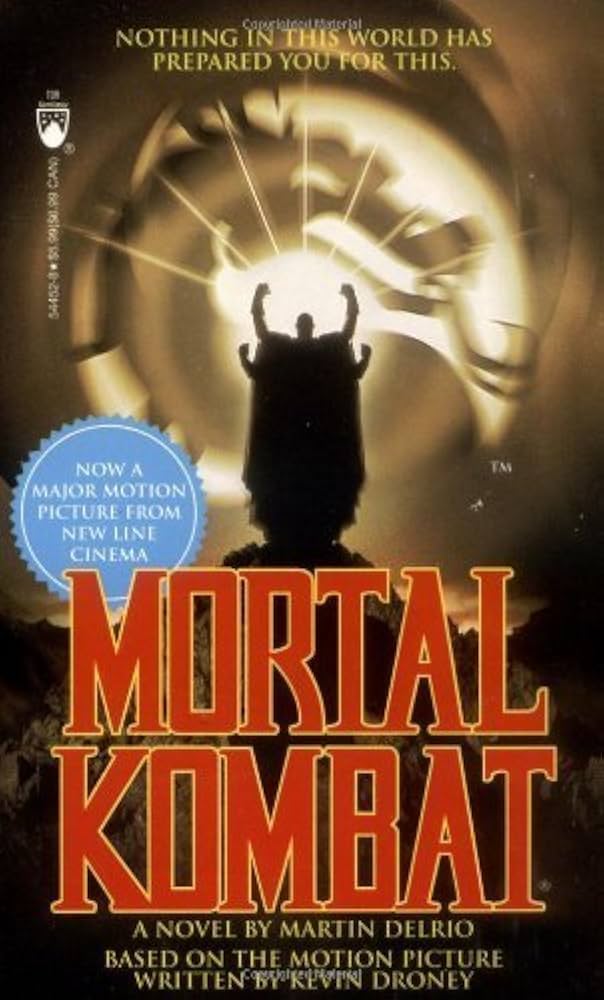
The Mortal Kombat movie novelization, penned by Martin Delrio (a pseudonym for husband-and-wife writing team Debra Doyle and James D. McDonald), is a similarly jarring experience for readers who know the series forwards and backwards. Adapting strange on-screen sights, like a four-armed fighter or a ninja that can freeze objects with his hands, is already a tough needle to thread; so too is choosing how many words to describe dialogue-free fight sequences. And with little to no chance of observing the actors playing the kombatants, there's no guarantee any writer could encapsulate the charm of Cary-Hiroyuki Tagawa or Christopher Lambert's iconic performances.
The book tries valiantly. The fight descriptions are bone-crushing if not always bloodthirsty, and it's clear some of them were still being worked out during production. Johnny Cage's duel with Scorpion ends before both are beamed into the netherworld (and before the undead ninja can peel his face off and shoot flames from his skull), and Liu Kang's fight with Reptile - reportedly a late addition to the film - is almost entirely missing. The strangest change has to be Sonya Blade's encounter with her rival, the crime boss Kano; Liu Kang and Cage urge her not to kill the red-eyed baddie, lest Shang Tsung absorb another soul's power. (Sonya doesn't always fight with honor: in another scene that didn't make it into the movie, she defeats Mortal Kombat II character Jade by kicking her in the face before the pre-fight bow even ends.)
While essentially a cameo in the final film, Jax is one of a few characters who gets more to do in the novelization. He's seen earlier in the book, where a failed bust of Kano sees Sonya's partner brutally murdered. After Sonya steps on Tsung's mystic boat to enter the tournament, Jax searches for her, connecting with the Order of Light and Liu Kang's grandfather (seen briefly toward the start of the film) to learn a bit about what the defenders of Earth have gotten into, and is eventually there to greet all the heroes at the end - and suddenly arrest Kano, who makes his first appearance on the page after losing that earlier fight. (Yes, you read that correctly: Kano disappears for the last third of the story, until he just shows up to get arrested.)
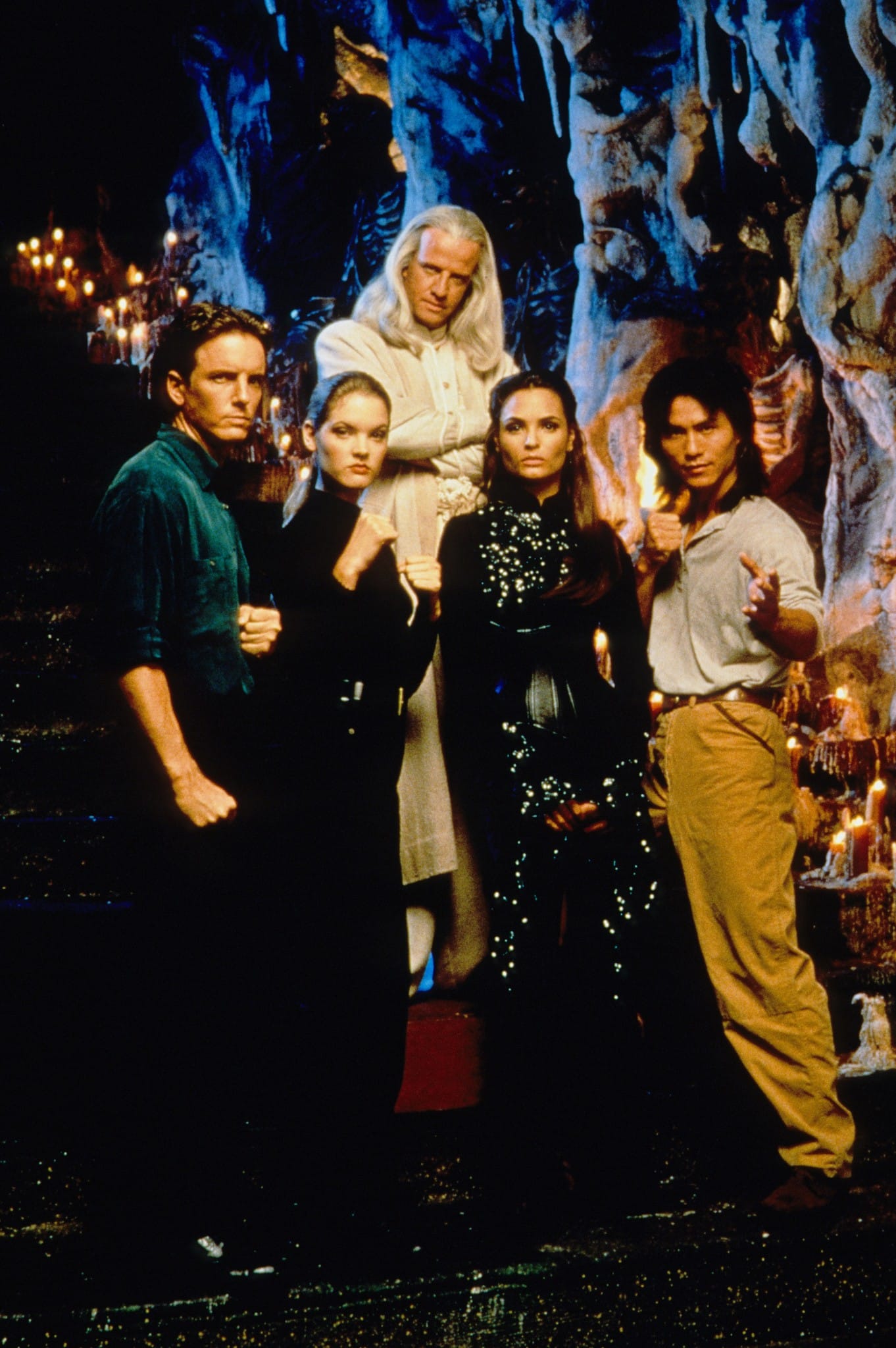
The film's sole new character, Art Lean - who's eventually killed by Goro - also gets a bit more exposition and interaction, winning a handful of fights and interacting more with the film's main characters. An earlier scene set in a banquet hall before the tournament starts is perhaps the oddest in the entire book, thanks to its vague descriptions of Outworld warriors ("Many of them were human, or nearly so...Others had grotesque animal, bird, or insect heads. Some had multiple legs.") and the extremely arbitrary presence of other Earthlings who get a handful of lines and disappear - often little more than introducing themselves to the main characters with names like "Brad," "Jesse," "Ryan" and "Pete the skier." ("He's wicked fast.")
No amount of Kombat Kodes could lessen the weirdness of reading 1995's Mortal Kombat novels. Neither serve as a particularly accurate representation of what the franchise meant to a horde of '90s kids. But perhaps, more than 25 years later, those books' ephemeral uniqueness helped keep fans loyal as the series entered increasingly leaner years before regaining its status as an in-demand franchise. It's not a flawless victory, but with an even gorier Kombat film now available to bloodthirsty fans, maybe these books were the combo we needed to get to the next round.
Perhaps Rovin said it best when asked about his unusual task: take a highly visual, very interactive story and turn it into a book that'll appeal to fans of the source material. "That is the greatest asset, isn't it?" he said. "Respect what was in the game." No doubt Kombat fans will feel the same about at least one of the non-game versions of the story floating out there, like so many souls in a soulnado.
